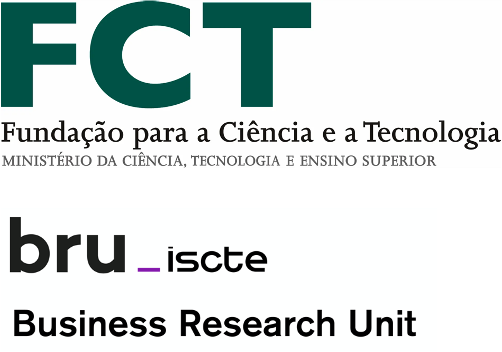A adaptação a ambientes instáveis e dinâmicos é um desafio para as organizações e requer melhorias contínuas nos produtos e serviços, bem como no funcionamento em geral. As rápidas mudanças exigem que os indivíduos e equipas de trabalho se adaptem rapidamente às novas condições e exigências das tarefas (e.g., Kozlowski & Bell, 2008). Esta nova realidade tem originado um conjunto de modelos teóricos e investigação empírica que tenta explicar a adaptação (e.g. Rosen et al., 2011). As equipas têm que ajustar os seus processos cognitivos e comportamentais, e os estados emergentes para se adaptarem a situações inesperadas (e.g., Burke et al. 2006). Contudo, a falta de integração teórica e empírica entre as diferentes abordagens tem impedido o avanço na área da adaptação de equipas. Ao nível empírico, existe claramente uma falta de estudos experimentais e de investigação que analise a adaptação como um processo dinâmico assim como de desenhos longitudinais que mostrem como é que os processos de adaptação ocorrem ao longo do tempo (Baard et al., 2014). Por fim, apesar das organizações se basearem cada vez mais em sistemas multiequipas (MTS) para atingirem os seus objetivos (Mathieu et al, 2001), a investigação não tem analisado como é que estas equipas coordenam as suas atividades para se adaptarem e atingirem desempenhos de excelência ao longo do tempo.
Propomos quatro estudos empíricos que combinam métodos de investigação e abordagens teóricas para captar as dinâmicas da cognição de equipa na adaptação e nas trajetórias de desempenho. Procuramos também investigar a cognição de equipa e a liderança como dois mecanismos de coordenação que facilitam a adaptação das MTS. No estudo 1 manipulamos experimentalmente os modelos mentais (MM) de equipa e a flexibilidade cognitiva de equipa para avaliar os efeitos causais destas variáveis nos processos de adaptação e nas mudanças no desempenho ao longo do tempo. Este estudo é inovador porque combina uma abordagem experimental e um design longitudinal, no qual avaliamos comportamentos e cognição em vários momentos ao longo do processo adaptativo. No estudo 2 usamos um design longitudinal para analisar o papel dos processos de liderança no desenvolvimento dos MM assim como na adaptação e nas trajetórias de desempenho. Zaccaro et al.(2001) consideram que a comunicação do líder (sensemaking e sensegiving) está positivamente relacionadas com os MM porque fornece um modelo contingencial de estímulos – respostas, o que é particularmente relevante em ambientes dinâmicos. Este estudo teste empiricamente esta hipótese, o que não foi feito até à data (Mark et al., 2001; Randall et al, 2011). No estudo 3, integramos a investigação realizada ao nível da liderança e cognição de equipas e analisamos experimentalmente o efeito das atividades de sensemaking e sensegiving do líder no desenvolvimento dos MM ao nível da semelhança e precisão. Este estudo vai para além da investigação já realizada ao analisar se as atividades do líder que contribuem para o desenvolvimento de MM semelhantes são iguais às que contribuem para o desenvolvimento de MM precisos, o que tem implicações para o desenvolvimento de práticas organizacionais. No estudo 4 analisamos a liderança de equipas e as cognições como mecanismo de coordenação das MTS, uma nova configuração organizacional que emergiu como uma resposta adaptativa aos novos desafios.
A nossa proposta de investigação representa uma importante contribuição por várias razões. Primeiro, os investigadores que seguem abordagens de desempenho longitudinal têm negligenciado os mecanismos envolvidos nos momentos em que as equipas se adaptam a mudanças. Pretendemos preencher este gap analisando o papel dos processos de equipa e da emergência dos estados cognitivos em diferentes fases do ciclo da adaptação de equipas (Rosen et al, 2011). Segundo, adotamos uma abordagem longitudinal inovadora para investigar os MM de equipa tendo em conta modelos teóricos recentes que chamam a atenção para a necessidade de investigação sobre as dinâmicas da cognição de equipas ao longo do tempo
(Kozlowski & Chao, 2012). Terceiro, a nossa investigação responde a uma limitação relacionada com o uso de estudos correlacionais para testar uma hipótese causal. Propomos um procedimento experimental para analisar como é que a cognição e a liderança de equipas afeta a adaptação ao longo do tempo. Finalmente, contribuímos para o desenvolvimento de uma nova área que não olha para as equipas como entidades isoladas. Focamo-nos nas MTS e investigamos de que foram a cognição e a liderança contribuem para o coletivo de equipas de adaptarem ao longo do tempo. Esta investigação levará a importantes resultados e a implicações práticas, pois ajudará os profissionais a desenvolverem competências de adaptação de equipa nas organizações.
| Centro de Investigação | Grupo de Investigação | Papel no Projeto | Data de Início | Data de Fim |
|---|---|---|---|---|
| BRU-Iscte | -- | Parceiro | 2016-05-01 | 2019-04-30 |
Não foram encontrados registos.
| Nome | Afiliação | Papel no Projeto | Data de Início | Data de Fim |
|---|---|---|---|---|
| Ana Margarida Soares Lopes Passos | Professora Catedrática (DRHCO); Investigadora Integrada (BRU-Iscte); | Investigadora Responsável | 2016-05-01 | 2019-04-30 |
| Ana Sousa Guedes | -- | Assistente de Investigação | 2018-02-16 | 2019-04-30 |
| Jorge Sinval | Investigador Integrado (BRU-Iscte); | Bolseiro Pós-Doc | 2019-01-15 | 2019-10-31 |
| Código/Referência | DOI do Financiamento | Tipo de Financiamento | Programa de Financiamento | Valor Financiado (Global) | Valor Financiado (Local) | Data de Início | Data de Fim |
|---|---|---|---|---|---|---|---|
| PTDC/MHC-PSO/1044/2014 | -- | Contrato | FCT - -- - Portugal | 151212.00 | 151212.00 | 2016-05-01 | 2019-10-31 |
Não foram encontrados registos.
Não foram encontrados registos.
Não foram encontrados registos.
Não foram encontrados registos.
Não foram encontrados registos.
Com o objetivo de aumentar a investigação direcionada para o cumprimento dos Objetivos do Desenvolvimento Sustentável para 2030 das Nações Unidas, é disponibilizada no Ciência_Iscte a possibilidade de associação, quando aplicável, dos projetos científicos aos Objetivos do Desenvolvimento Sustentável. Estes são os Objetivos do Desenvolvimento Sustentável identificados para este projeto. Para uma informação detalhada dos Objetivos do Desenvolvimento Sustentável, clique aqui.

 English
English



